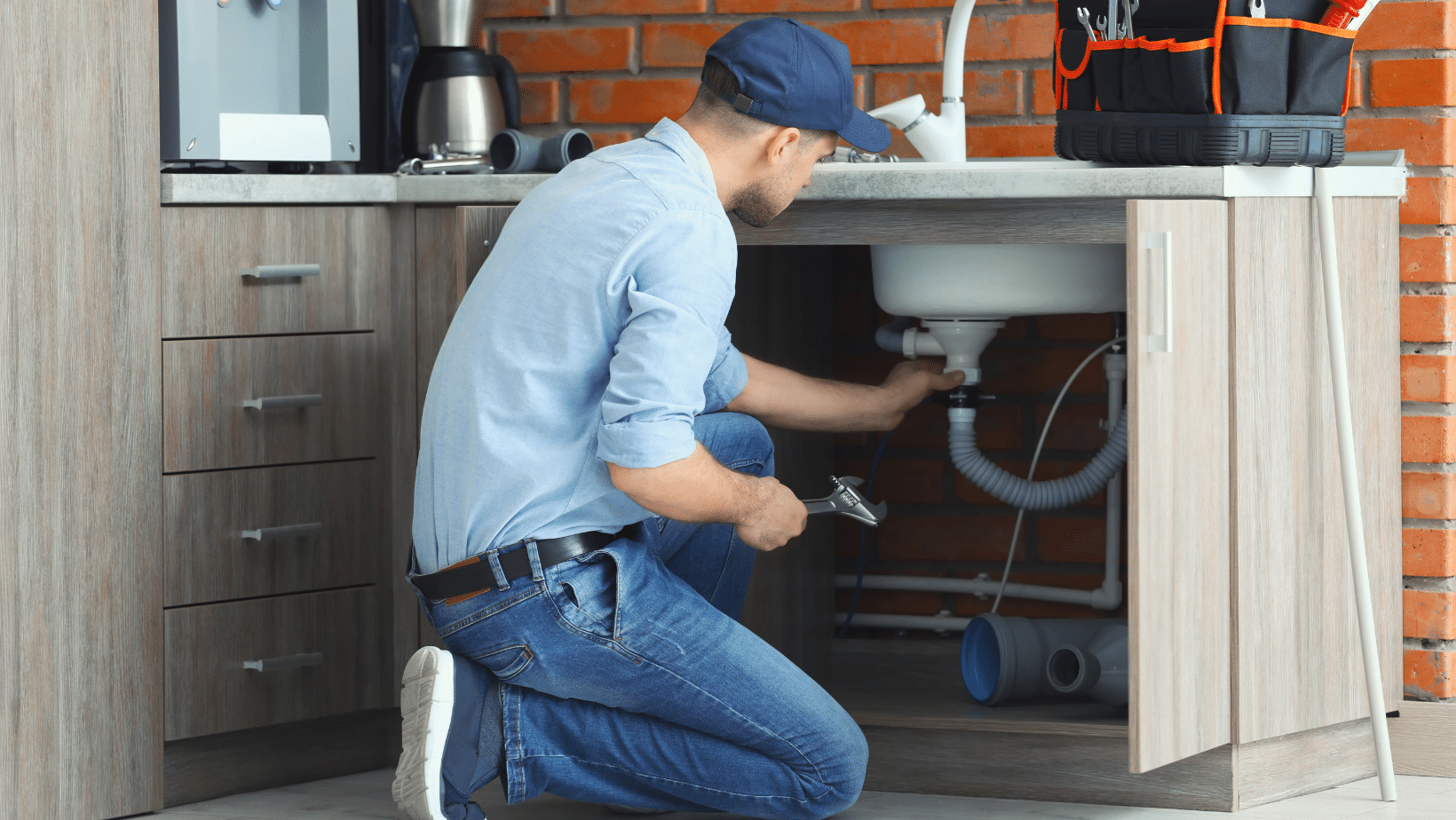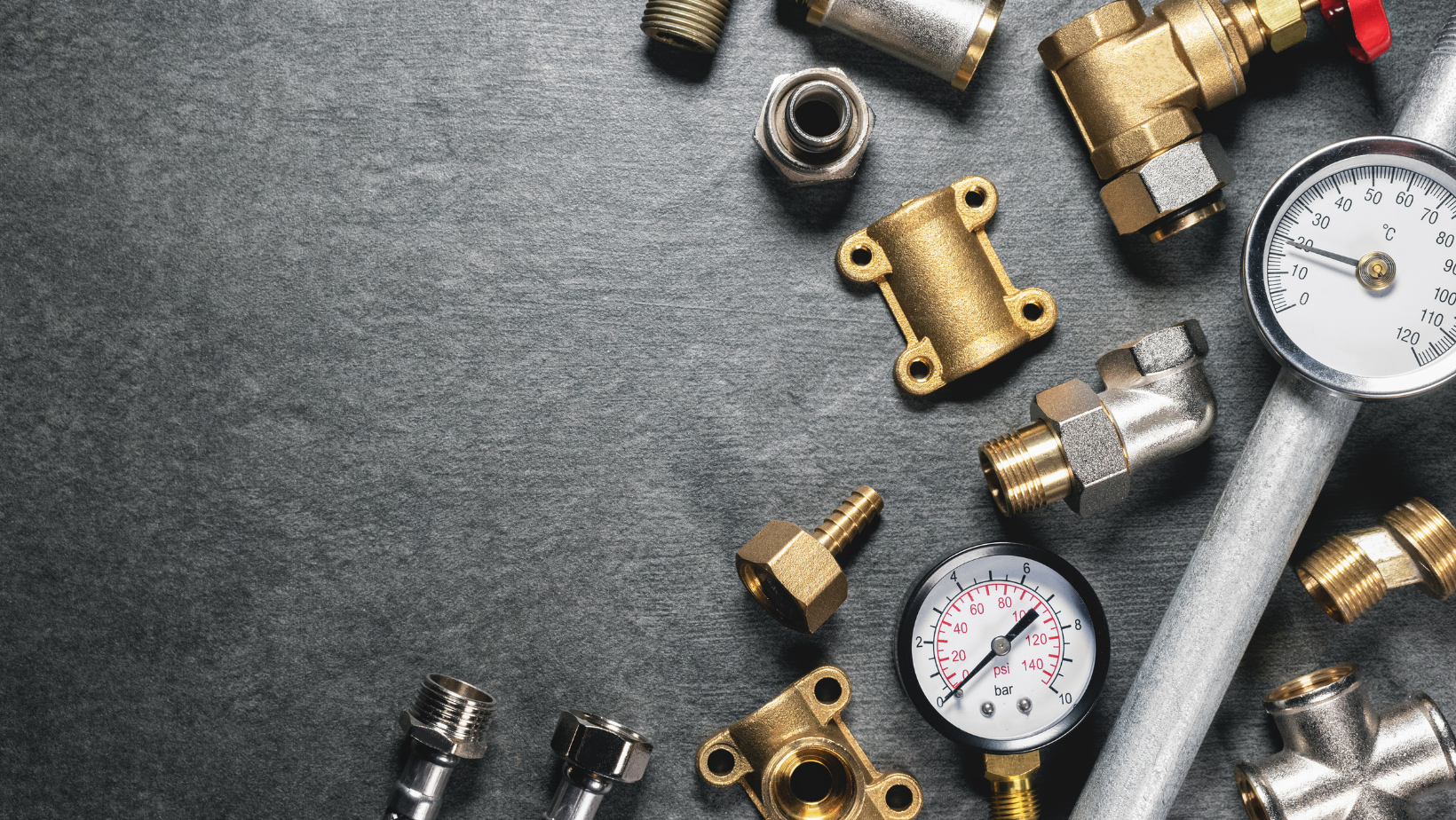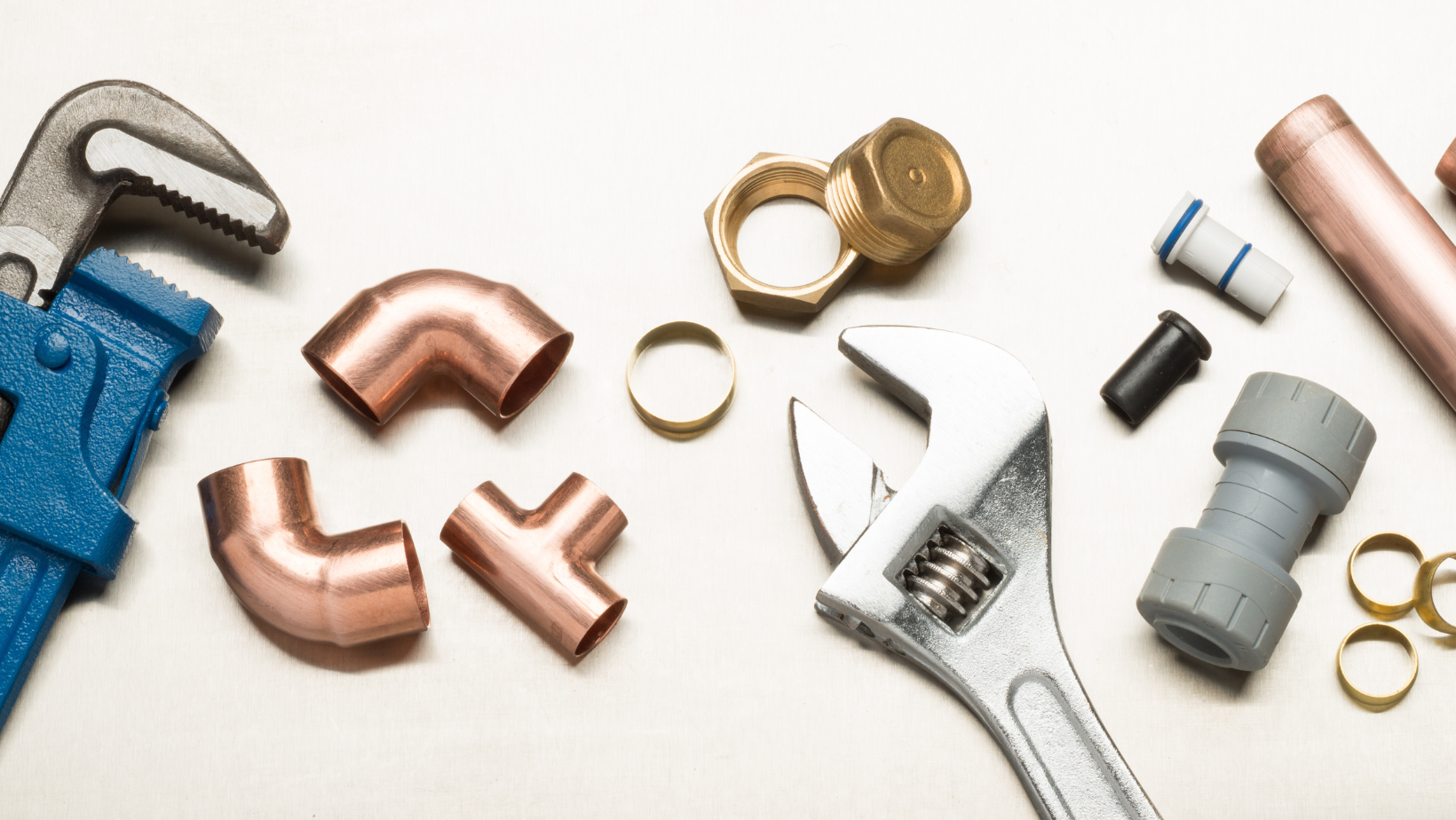
Plumbing is an essential part of any home or business. It carries water, sewage, and other fluids throughout a structure and helps ensure a comfortable and functional environment remains. However, commercial and residential plumbing systems are very different from one another.
This article will explore the differences between commercial and residential plumbing to help you make the best decision for your needs. From the types of pipes and fittings used to the regulations that must be followed, there is much to consider when deciding between commercial and residential plumbing. Keep reading to learn more about the differences between these two types of plumbing.
What Is Plumbing?
Plumbing refers to pipes, fixtures, and other apparatuses used for water distribution and waste disposal in a building or structure. It encompasses various activities, such as installing, repairing, and maintaining pipes and plumbing fixtures like sinks, faucets, toilets, showers, and water heaters. Plumbing ensures clean water supply and effective waste management in residential, commercial, and industrial settings. Plumbers are skilled professionals who specialize in handling plumbing installations and repairs to ensure the system's proper functioning.
Commercial Plumbing Services
Commercial plumbing refers to the plumbing services and systems specifically designed for commercial buildings such as offices, restaurants, hotels, and retail stores. Unlike residential plumbing, commercial plumbing service involves more complex and larger-scale installations, repairs, and maintenance. Commercial plumbers are trained and equipped to handle commercial plumbing systems' unique needs and challenges, often requiring specialized equipment and expertise.
These industrial plumbing services are essential for ensuring a commercial sewer establishment's proper functioning and efficiency, as any plumbing issues can disrupt operations and potentially lead to costly damages. Therefore, businesses and property owners rely on reliable plumbing services to maintain the integrity of their plumbing emergency services and ensure a safe and comfortable environment for employees and customers.
Common Equipment Used in Commercial Plumbing
Commercial plumbing services use larger pipes and fittings than residential systems. Here are some of the most common equipment used in commercial services:
PVC Pipes
PVC pipes are widely used in various industries and applications due to their durability, versatility, and cost-effectiveness. These commercial plumbing system pipes are made from a type of plastic called polyvinyl chloride (PVC), known for its strength and resistance to corrosion and chemicals. PVC pipes are used for commercial building plumbing systems, irrigation, drain cleaning, sewer line repair, and electrical conduits. They are lightweight, easy to install, and have a long lifespan, making them popular among contractors and homeowners. PVC pipes are environmentally friendly as they can be recycled, further adding to their appeal.
Copper Pipes
Copper pipes are a popular choice for a commercial plumber due to their durability and resistance to corrosion. They are also easy to install, have low maintenance, and have a long lifespan. Copper pipes resist extreme temperatures, making them perfect for hot and cold water installation services. Additionally, copper is considered one of the most sanitary materials used in plumbing as it does not harbor bacteria or promote the growth of mold and mildew.
Cast Iron Pipes
Cast iron pipes are commonly used in commercial and residential plumbing systems. These pipes are made from a combination of iron and carbon, which makes them incredibly durable and resistant to corrosion, pressure, and extreme temperatures. In addition, cast iron pipes have a long life span and can be installed quickly and easily. However, they are heavier than other pipes and may require more installation labor.
Galvanized Pipes
Galvanized pipes are made of steel that has been coated with a layer of zinc. This coating helps protect the steel from corrosion, making them durable and more resistant to rust and other damage. Galvanized pipes are an affordable and reliable choice for commercial plumbing maintenance, as they can be used in various applications such as water supply lines, sewage systems, and more.
Residential Plumbing
Residential plumbing refers to the services provided for residential properties such as houses, apartments, and condominiums. These services include installing, repairing, and maintaining plumbing systems in residential buildings. Residential plumbers are trained professionals who specialize in handling the unique plumbing needs of homes.
They have the knowledge and expertise to handle various plumbing issues, such as leaking pipes, clogged drains, and faulty water heaters. Having reliable residential plumbing services is essential for homeowners to ensure their plumbing systems' proper functioning and avoid costly damages and inconveniences.
Common Equipment Used In Residential Plumbing
Residential plumbing requires specialized equipment to ensure all jobs can be completed safely and efficiently. Plumbers often use tools such as wrenches, pliers, and screwdrivers but also have access to more advanced equipment. Some of the most commonly used items in residential plumbing include:
Pressure Gauges
Pressure gauges are essential tools used in various industries and applications to measure and monitor the pressure of liquids or gases. These gauges provide accurate readings of the pressure levels, allowing operators to ensure that systems operate within safe and optimal ranges. Pressure gauges are commonly used in gas, manufacturing, automotive, and HVAC systems.
They play a crucial role in maintaining the efficiency and safety of equipment and processes by detecting any abnormal pressure fluctuations or sewer lines leaks. With the ability to provide real-time pressure readings, pressure gauges are invaluable instruments that help prevent equipment failures, ensure proper functioning, and ultimately improve overall productivity and operational performance.
Pipe Wrenches
Pipe wrenches are essential tools for plumbers and anyone working with pipes. They are designed to provide a strong grip and leverage to loosen or tighten pipes and fittings. The adjustable jaw allows the wrench to fit different sizes of pipes, making it versatile for various plumbing tasks.
Pipe wrenches are typically made of durable materials like steel and have a long handle for increased leverage. Whether fixing a leaky pipe or installing new plumbing fixtures, having a pipe wrench in your toolkit is crucial for getting the job done efficiently and effectively.
Auger
An auger is essential for clearing out blocked drains and plumbing fixtures. It is a specialized tool that comes in two varieties, a manual version, and a powered version. Augers insert the shaft through the pipe to break up debris and remove it from the system.
Manual augers are suitable for small blockages, while powered augers are designed for more serious clogs. Augers are essential tools in residential plumbing that provide a quick and easy solution to common plumbing issues.
Plunger
Plungers are simple handheld devices designed to help unclog blocked drains or toilets. They create suction in the pipe or drain to loosen the blockage, allowing it to be easily removed. Plungers come in various sizes and shapes, depending on the application. A plunger is essential for residential plumbing since they are an effective tool for quickly clearing out stubborn clogs and restoring proper water flow.
Snake
Snakes are long, flexible rods with a small camera attached. These specialized tools are designed to find and remove blockages in plumbing systems that cannot be accessed by hand. Snakes come in various lengths and sizes, allowing them to reach even the most difficult-to-reach locations. Professional plumbers can quickly detect leaks or clogs in hard-to-reach areas using a snake, saving time and effort.
Multimeter
A multimeter is essential for residential plumbing, allowing plumbers to measure electrical current, voltage, and resistance accurately. Using a multimeter, plumbers can detect faulty wiring or other electrical problems that could cause serious damage. They are also useful for troubleshooting various components in the plumbing system, such as pumps and valves.
Key Differences Between Commercial and Residential Plumbing
Commercial and residential plumbing share many similarities, but there are some key differences to consider when choosing which type of plumbing is best for your property. Here are the main differences between commercial and residential plumbing:
Materials Used
Commercial and residential plumbing systems use different materials for their pipes, fittings, and fixtures. Commercial plumbing systems generally use more durable materials like brass or steel to ensure higher water pressure and increased longevity. Residential plumbing systems typically use plastic pipes that are easier to install, less expensive, and require less maintenance.
Size of System
The size of commercial and residential plumbing systems can vary significantly due to the different types of buildings and properties they service. Commercial plumbing systems tend to be more complex due to the increased number of occupants, restrooms, and fixtures. In contrast, residential plumbing systems are usually smaller, serving fewer people and spaces.
Installation Process
The installation process for commercial and residential plumbing also differs significantly due to the complexity of a commercial system. Professional plumbers must be hired for commercial plumbing to ensure the system is installed properly and complies with all building codes. Residential plumbing systems are simpler and can usually be handled by a DIYer or local plumber.
Maintenance Requirements
The maintenance requirements for commercial and residential plumbing also vary significantly. Due to their complexity, commercial plumbing systems require frequent inspections and maintenance, while residential systems may only need occasional maintenance. Heavy use makes Commercial plumbing systems more likely to be impacted and require frequent checks and maintenance.
Costs
The costs of commercial and residential plumbing systems vary widely due to the size, complexity, and materials used. Commercial plumbing systems tend to be significantly more expensive than residential due to the increased number of fixtures, pipes, and fittings needed. Additionally, commercial plumbing firms often charge higher labor rates than residential plumbers, adding to the overall cost of a system.
Safety Regulations
Commercial and residential plumbing systems must adhere to different safety regulations. Commercial plumbing systems are subject to more stringent regulations due to the increased number of occupants and fixtures they service. Residential plumbing systems generally have fewer safety regulations, but local building codes should still be followed to ensure proper installation and maintenance.
Codes and Inspections
Commercial and residential plumbing systems must be regularly inspected to ensure compliance with safety regulations. Commercial plumbing systems must adhere to a more stringent set of codes due to the increased occupancy levels they serve. Residential plumbing is subject to fewer restrictions, but local building codes should still be adhered to to maintain proper system integrity.
Repair Process
The repair process for commercial and residential plumbing systems also differs significantly. Commercial systems are more complex and require specialized tools and expertise, while residential systems can often be repaired with DIY methods. Additionally, emergency plumbing services often must do commercial repairs to adhere to safety regulations.
Benefits of Using Professional Plumbers
Professional plumbers offer a variety of benefits when it comes to repairing and maintaining commercial and residential plumbing systems. Here are a few of the most important benefits:
Access to Specialised Tools
Finding the right plumber is essential for repairing and maintaining commercial and residential plumbing systems. Professional plumbers have access to specialized tools, techniques, and knowledge that can help ensure a successful repair or installation. They have the skills to ensure any repairs are completed safely and comply with local building codes.
With their experience and expertise, professional plumbers can also provide valuable advice on which materials and techniques may be best for a specific plumbing project. In the end, utilizing the services of a plumbing company can save time, money, and stress when it comes to commercial and residential plumbing systems.
Knowledge of Local Regulations
Knowledge of local regulations is essential for commercial and residential plumbing systems. Professional plumbers have the expertise to understand the codes and regulations that apply in their area, which can help ensure proper installation and maintenance of a system. Additionally, they are well-versed in the safety requirements of commercial plumbing systems due to their complexity and higher occupancy levels.
Using a professional plumber for commercial and residential plumbing systems can also help protect home and business owners from potential liabilities resulting from improper installation. Professional plumbers know to ensure any repairs are completed safely and adhere to all relevant codes, saving time, money, and stress in the long run.
Quality Assurance
Quality assurance is another benefit of using a professional plumber for commercial and residential plumbing systems. Professional plumbers have the experience and expertise to ensure any repairs or installations are completed correctly the first time. This can help save time, money, and hassle in the long run by avoiding costly mistakes or unnecessary repairs resulting from shoddy workmanship. Additionally, plumbing repairs often provide warranties for their work, adding peace of mind to any plumbing project.
Drawbacks of Using Professional Plumbers
Using professional plumbers for commercial and residential plumbing systems does have some drawbacks. Here are a few of the most important drawbacks to consider:
Cost
Hiring a professional plumber can be expensive, especially for large-scale projects. Some specialized services or materials may cost extra or require additional fees. Home and business owners should carefully review any estimates and commercial plumbing problems before hiring a professional plumber to ensure they understand all potential costs associated with their project.
Time Consumption
Professional plumbers often require more time to complete a job due to the complexity of most commercial and residential plumbing systems. Hiring a professional plumber means increased wait times while they source materials, diagnose issues, and make necessary repairs. This can be frustrating if an emergency repair is needed or if you need a quick turnaround time on a project.
Lack of Personalisation
Plumbing professionals can be a great resource for commercial and residential plumbing systems but cannot provide personalized solutions for unique needs. As they are working on behalf of a company, it can be difficult to find one willing or able to change their standard services or procedures.
Conclusion
The difference between commercial and residential plumbing is based on the type of property that requires plumbing services. Commercial properties, such as businesses, apartment buildings, and industrial complexes, require large-scale plumbing systems to meet their needs. Residential properties, including single-family homes, townhomes, mobile homes, apartments, and condominiums, typically require smaller-scale plumbing systems. The type of property will determine the type of necessary plumbing services.


